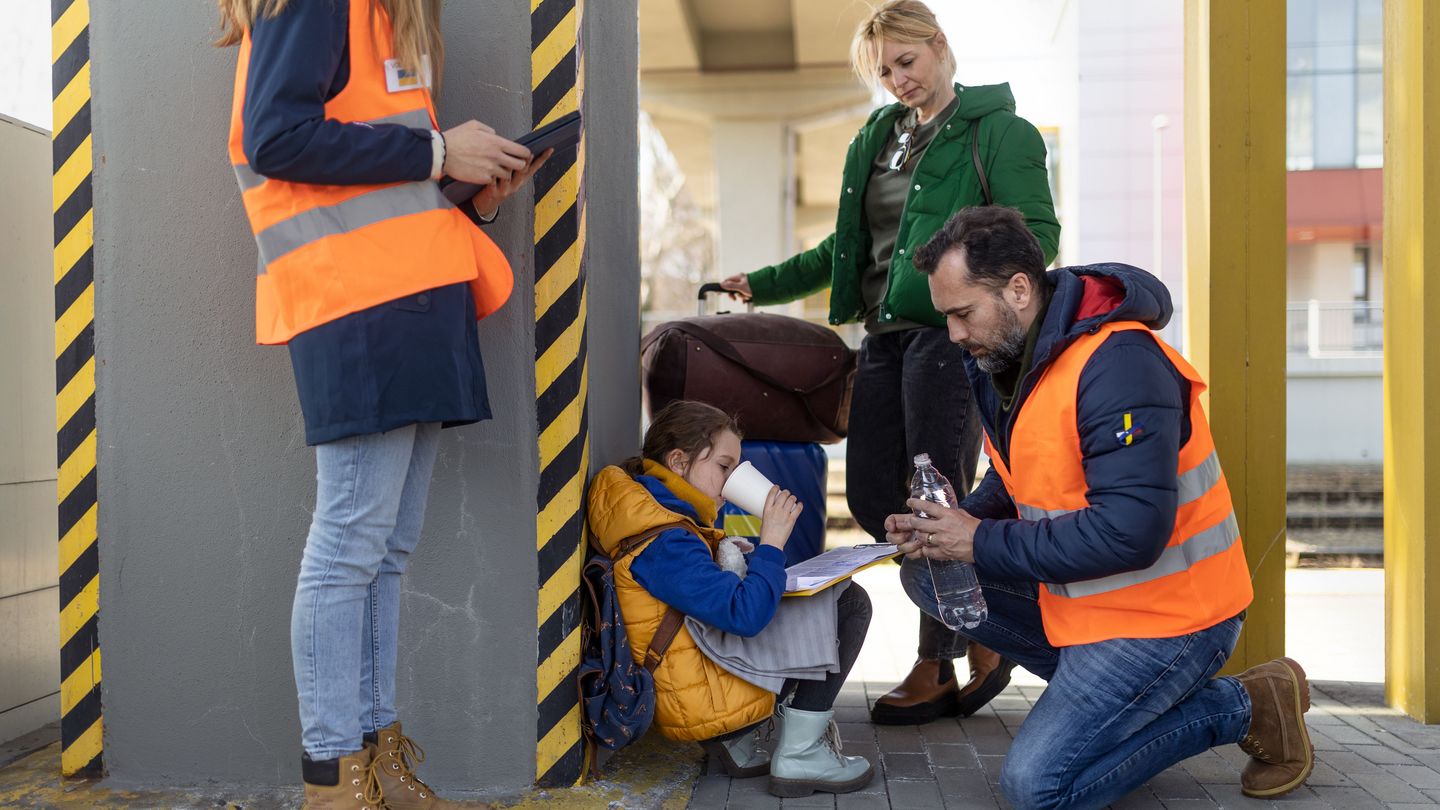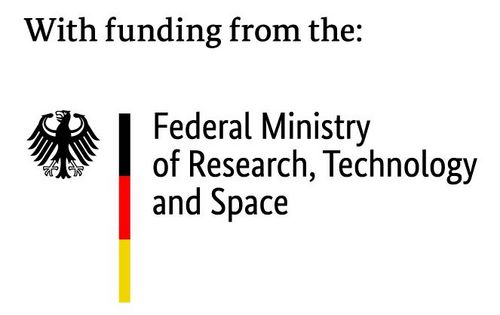EQuiP: Network-Oriented Psychosocial Crisis Management
From Polycrisis to Resilience: Development of Network-Oriented Quality in Psychosocial Crisis Management within Public Administration

- Project
EQuiP – Development of Network-Oriented Quality in Psychosocial Crisis Management within Public Administration
- Running time
01 October 2024 until 30 September 2027
- HWR Berlin
Berlin Institute for Safety and Security Research (FÖPS)
- Responsible for the project
Prof. Dr. Vincenz Leuschner
- Project members from the HWR Berlin
Dr. Mika Josephine Moeller
Verena Flörchinger
Malena García Lombardi - Project partners:
Alice Salomon Hochschule Berlin (ASH)
Senatsverwaltung für Inneres und Sport Berlin (SenInnSport)
Gesundheitsamt Frankfurt am Main - Associated partners
Notfallseelsorge/Krisenintervention Berlin
Notfallseelsorge Frankfurt, Diakonisches Werk
Kriseninterventionsteam ASB München
Landeszentralstelle Psychosoziale Notfallversorgung (PSNV) Mecklenburg-Vorpommern
Der Beauftragte für Polizei- und Notfallseelsorge der Evangelische Kirche von Kurhessen-Waldeck (EKKW)
Landesfeuerwehrschule Schleswig-Holstein, Landeszentralstelle PSNV
Erzbischöfliches Ordinariat München, Notfallseelsorge
Berliner Feuerwehr- und Rettungsdienst-Akademie
Feuerwehrseelsorge Hamburg / Leitung Notfallseelsorge
Bundesamt für Bevölkerungsschutz und Katastrophenhilfe (BBK)
Medical School Hamburg GmbH - Funded by
BMFTR
- Projectwebsite
What is it about?
Crises are constructed realities: whether severe stressors escalate into a crisis or catastrophe depends on the resilience of a community — the ability of government and communities to absorb shocks, adapt and continue in a transformed state. Such stressors may be triggered by pandemics, terrorist attacks, large-scale damage events, or climate-related extremes such as heavy rainfall and droughts — as well as by the complex coordination and support tasks that arise when many people are forced to flee and migrate. These stressors affect not only infrastructures but also the psychosocial well-being of the population. The EQuiP consortium aims to enhance the quality and structure of network-oriented psychosocial crisis management in public administration and thereby to strengthen community resilience on a lasting basis. At the centre is the question of how state and civil-society actors can cooperate effectively and sustainably.
What motivates you to conduct this research?
Polycrises — overlapping, mutually reinforcing crises — challenge government and society and overwhelm existing emergency structures. In current comprehensive crisis management, psychosocial aspects are often underestimated and inadequately considered. Meeting these challenges requires robust, networked structures that extend far beyond acute Psychosocial Emergency Care (PSNV) and foster community resilience. This is precisely where our research begins.
What is the starting point?
Psychosocial emergency care (PSNV) is currently geared almost exclusively to the acute phase and usually ends after no more than seven days. For medium- and long-term support — as well as for preparedness — binding quality standards and coordinated structures are lacking that effectively and reliably connect public authorities, professional services and civil-society initiatives. This fragmented landscape therefore needs reliable concepts and frameworks for cooperation and quality assurance.
What are the specific goals of the project?
- Development of a practice-oriented action framework and quality standards for psychosocial crisis management
- Promotion and strengthening of community resilience by improving networking and cooperation between state and non-state actors
- Design of a modular blended-learning training programme
- Structural anchoring of a comprehensive, sustainable psychosocial crisis-management approach beyond the acute phase
How does the project team intend to achieve these goals?
EQuiP is organised as a consortium coordinated by HWR Berlin, which assumes both coordinating and research tasks. Together with colleagues at Alice Salomon Hochschule Berlin and practice partners from the Gesundheitsamt Frankfurt am Main and the Senatsverwaltung für Inneres und Sport Berlin, we develop solutions for sustainable psychosocial crisis management. Cooperation with additional associated partners — for example from pastoral care, fire brigades and civil protection — ensures close practical relevance.
An interdisciplinary HWR research team — with expertise in psychology, anthropology, geography, security studies and disaster sociology — analyses four deliberately contrasting crisis cases in Germany (the racially motivated attack in Hanau 2020, the arrival of refugees from Ukraine in Berlin, the 2021 flood disaster, and drought and water scarcity in Thuringia). Case selection focuses primarily on differences in hazard type, onset speed (rapid vs. slow), duration of strain and urban versus rural context. Using the situational-analysis method, the team derives practical quality standards and an action framework for networking state and civil-society actors; the results are then transferred into a modular blended-learning programme and piloted with practice partners to embed the intended strengthening of community resilience and the operational capacity of administrations and emergency services on a sustainable basis.
What have you discovered so far?
- Mismatched temporalities and action logics
The internationally defined crisis-management cycle (Preparedness → Response → Recovery), the psychosocial crisis-management cycle and community-resilience processes each follow their own temporality. These differing temporal dynamics generate distinct action logics; at phase transitions friction arises because actors from government, emergency services and civil society often struggle to appreciate one another’s perspectives. - Secondary psychosocial crises
Poorly coordinated or overly short-term crisis-response measures that overlook psychosocial aspects can themselves act as stressors, triggering additional psychosocial crises and increasing the overall burden. - Community resilience as a strategy
Community resilience has emerged as a strategic approach within psychosocial crisis management: when psychosocial competencies, network building and adaptive capacities are embedded throughout all phases, a common language and shared understanding develop between responders and the population.
What surprised you?
Die Vielfalt und Professionalität zivilgesellschaftlicher Akteur*innen im Bereich der psychosozialen Versorgung ist beeindruckend – ebenso wie ihr Bedarf an struktureller Einbindung. Viele arbeiten seit Jahren engagiert, aber ohne stabile Anbindung an staatliche Prozesse. Hier gibt es enormes Potenzial, das bislang ungenutzt bleibt.
What contribution does the project make to sustainability?
EQuiP contributes to social sustainability by establishing structures designed to support people in the long term. Resilient communities arise not from technology or infrastructure alone — they need reliable social networks and long-term support perspectives.
Contact:
Department Police and Security Management
Prof. Dr. Vincenz Leuschner, Professor of Criminology and Sociology
Berlin Institute for Safety and Security Research (FÖPS)
vincenz.leuschner (at) hwr-berlin.de
